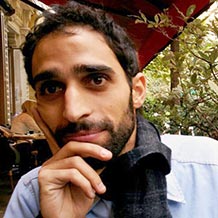A deluge of bizarre and malicious emails targeting a professor at Harvard Medical School has left him reeling, while raising questions about the smear campaign’s use of a popular online forum where scientists publicly critique research.
Joseph Loscalzo sent a letter to PubPeer, the online forum, in September describing an “aggressive cyberstalking and harassment campaign” that “has relentlessly targeted myself and my colleagues” for many months with “misleading and often inaccurate comments.” He called PubPeer “a vehicle” for the attacks, alleging anonymous comments raising concerns about at least 15 papers were posted “in bad faith” and then used to defame and badger him in emails to other researchers, journals, and universities.
Loscalzo, physician-in-chief emeritus and former chair of the department of medicine at Brigham and Women’s Hospital in Boston, asked PubPeer to remove the offending comments and impose a six-month moratorium on anonymous posts about his work. The letter was obtained by Retraction Watch.
Continue reading Cyberstalking pits Harvard professor against PubPeer






